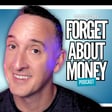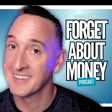
🤓 Tax Planning Strategies for Early Retirees with Sean Mullaney 🎓
Subscribe and Watch on YouTube
🤓 Sean Mullaney discusses Tax Planning Strategies. Sean, a CPA and financial planner, also known as The FI Tax Guy explains fundamental tax planning strategies, some advanced tax strategies and concepts, and how the financial independence community may be getting it wrong when it comes to taxes. ❌
🔑 Key Topics Discussed:
👉 Introduction to Financial Independence Tax Planning
👉 Top Five Tax Planning Strategies
👉 Reducing Taxes Through Daily Habits
👉 Tax Strategies for High-Income Earners
👉 Solo 401k and Small Business Owners
🔗 Sean’s Links:
🎥 Sean's YouTube Video: Pay NO Federal Income Taxes in Retirement!!!
📜 IRS Trade or Business Defined
🔗 David's Links:
🍏 Forget About Money on Apple Podcast
🎧 Forget About Money on Spotify
🕒 Timestamps/Chapters:
0:00 - 🎙️ Introduction to Financial Independence Tax Planning
5:21 - 📋 Top Five Tax Planning Strategies
14:07 - 🏦 Reducing Taxes Through Daily Habits
24:41 - 💼 Tax Strategies for High-Income Earners
29:30 - 🏢 Solo 401k and Small Business Owners
34:12 - 🏠 Exploring the Buy, Borrow, Die Strategy 36:45 - 🏡 Inheritance and Real Estate Strategy
46:45 - 📈 Accumulation vs. Decumulation Strategies
55:29 - 🏥 Taking Control of Your Health and Healthcare
1:01:13 - 🔍 Annuities - Risks and Considerations
1:07:54 - 📜 Tax Cuts and Jobs Act - Extension Predictions
1:10:54 - 🌟 Emerging Tax Trends and Exploration Opportunities
1:13:18 - 🧠 Critical Thinking in Financial Decision-Making
1:16:50 - 💡 Misconceptions About Roth IRAs and Traditional Accounts
1:20:22 - 🌅 Proactive Healthcare Approaches for FI Community
🎧 Listen & Subscribe: Don’t forget to subscribe to "Forget About Money" for more insightful episodes featuring experts who guide you on achieving financial independence and optimizing your tax strategies. Hit the bell icon 🔔 to get notified of new episodes!
#️⃣ Hashtags: #TaxPlanningStrategies #SeanMullaney #TheFITaxGuy #FederalIncomeTaxChanges #TaxBrackets #StandardDeduction #HighIncomeEarners #TaxOptimization #EarlyRetirementTaxPlanning #Solo401k #FinancialIndependence #BuyBorrowDieStrategy #TraditionalRetirementAccounts #TaxMisconceptions #RetirementInvestmentAdvice #TaxDeductions #TaxExemptions #TaxCredits #TaxTailWagTheInvestmentDog
The discussion is intended to be for general educational purposes and is not tax, legal, or investment advice for any individual. David and the Forget About Money podcast do not endorse Sean Mullaney, Mullaney Financial & Tax, Inc. and their services.

